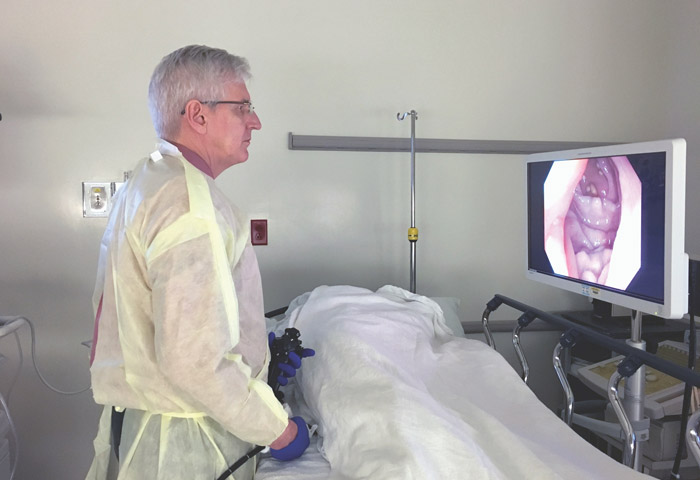 DEEP SLEEP Despite what researchers hypothesized, deep sedation doesn't affect colonoscopy detection rates.
DEEP SLEEP Despite what researchers hypothesized, deep sedation doesn't affect colonoscopy detection rates. The use of deep sedation over moderate sedation did not improve adenoma- or polyp-detection rates in colonoscopy screenings, according to a new study.
The study, which was published in Gastrointestinal Endoscopy, aimed to determine whether one sedation technique was more efficient at adenoma- or polyp-detection and improved the overall quality of the colonoscopy, according to the lead author, Matthew L. Bechtold, MD, FASGE, of the department of gastroenterology and hepatology at the University of Missouri Health Science Center in Columbia, Mo. What their research uncovered: The adenoma- and polyp-detection rates were not significantly different between colonoscopy patients who underwent moderate sedation only versus those who underwent deep sedation only.
From a facility standpoint, sedation method matters. Moderate sedation, which previous studies have indicated is the preferred method of sedation for the majority of U.S. colonoscopies, is less costly than deep sedation. Deep sedation, which requires the presence of an anesthesiologist or certified registered nurse anesthetist, increases the overall cost of the procedure but saves time because patients are sedated much more quickly than with moderate sedation.
Researchers theorized that the rapid onset of deep sedation anesthesia via propofol may allow for a more thorough colonoscopy screening and ultimately better detection rates. "When you sedate with moderate sedation techniques, it takes up to 20 minutes to sedate the patient. Deep sedation with Propofol takes about 15 seconds. Is the time better spent looking at a patient's colon or waiting for them to become sedated? That's why we thought maybe the deep sedation would yield a better detection rate," says Dr. Bechtold.
.svg?sfvrsn=be606e78_3)
.svg?sfvrsn=56b2f850_5)